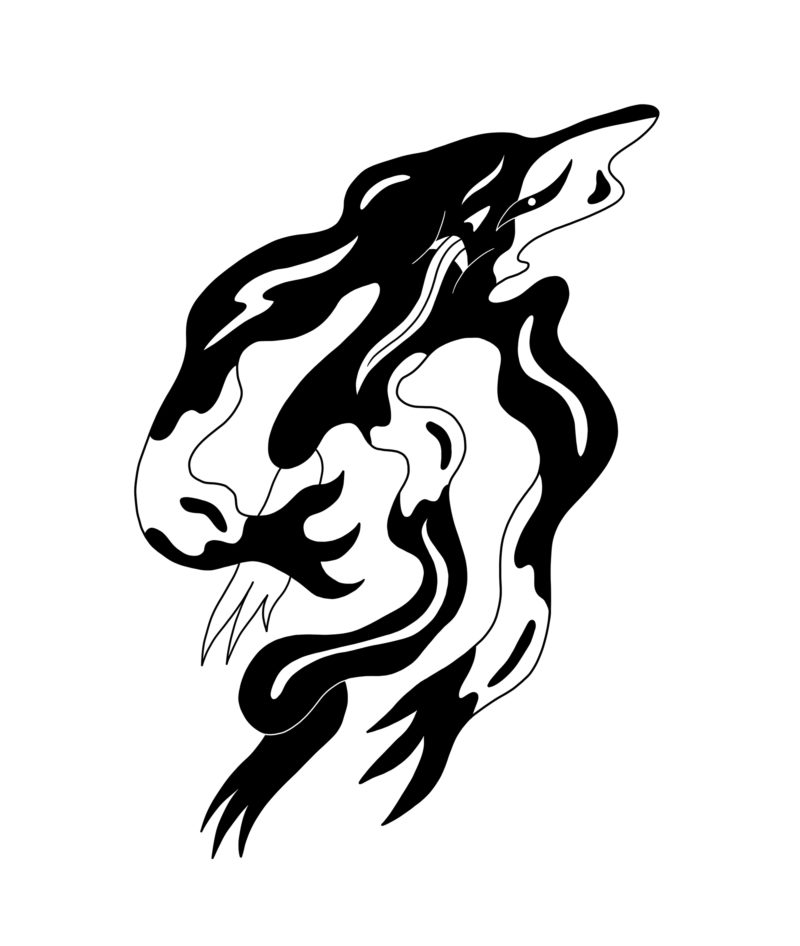My lover comes to me like darkfall—long,
and through my open window. Mullion, transom.
A good window lets the outside participate.
I keep time on the hematite clocks of her shoulders.
And I’ve done so much of it—time. Her right hip-
bone is a searchlight, sweeping me, finds me.
I’ve only ever escaped through her body. What if
we stopped saying whiteness so it meant anything.
For example, if you mean milk of magnesia say
milk of magnesia, or snow, or they’ve hurt another
one of us, or the way the quarter-moon is a smoke
atop the dirty water, or the pearline damp she laces
up my throat, my face. Mi caracol. They think
brown people fuck better when we are sad.
Like horses. Or coyotes. All hoof or howl. All
mouth clamped down in the hair, on the neck,
slicked with latherin. You ask, Who is they?
even though you know. You want me to name
names. Shoot, we are named after them. You think
my creator had heard of the word Natalie? Ha!
When he first made me he called me, Snake—
then promised the afterlife would be reversed,
south turned north, full with tight watermelons.
Pluck one melon and another melon grows
in its place. But it’s hard, isn’t it? Not to perform
what they say about our sadness, when we are
always so sad. It is real work to not perform
a fable. Just ask the turtle. Ask the hare.
Remind yourself and your friends: Sometimes
I feel fast. Sometimes I am so slow. Sometimes
I get put down in the street. Always I win
the wound they hang on my chest. Remind
yourself, your friends. They are only light because
we are dark. If we didn’t exist, it wouldn’t be long
before they had to invent us. Like the light switch.
Yes, our Creator says Kingdom and we come.
Remind our friends. We fuck like we church—
best. And full of god, and joy, and sins, and
sweet upside-down cake. And when they ask me,
What’s in your love’s eyes? I tell them. Wild water-
melons, green-on-green striped. She and I, we eat
the watermelon, starting at its thick sugar-heart,
hold the beady seeds in our mouths like new eyes
and wait for them to leap open and see us first.
This poem is supported in part by the National Endowment for the Arts.





